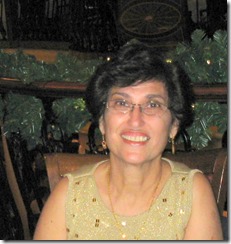Our eighth author in the Everyday Parsi Series
Mahrukh Cama writes
To this date, arrival of Fall reminds me of the muktad/gatha days when I was growing up in Karachi.
While Muktad prayers took place in the two agiaris, the Parsi community met early morning for humbandagi at Jehangir Baug, a hall for navjotes, weddings and ghambars, etc. I remember getting dressed by 6.30am and walking with family and neighbors to the hall, about 15 minutes walk. Upon arrival we would do our kasti, take a prayer book from the shelf, “Congregational Prayers for Farvardegan Days” and seat ourselves in the hall. On the stroke of seven the congregation would rise and the verses to be prayed that day would be announced in gujarati – “Banuo ney ghrasto, aajay aprey beejo, teejo ney chotho fakhro bhansu”
Mrs. Dubash would then come up to the podium and lead the congregation by first singing solo, followed by the congregation singing with her the second time. The hall resonated beautifully with the male and female voices. She would then read the gujrati translation of the verse. Upon completing the assigned verses, the congregation would be seated and Ervad Godrej Sidhwa would speak briefly on a topic of the day. His sermons were very inspirational to me as you could apply its teachings in your daily life. At 7.30 am the humbandagi would end and we would rush home and head for school.

Now at our Darbe Mehr (for New York, New Jersey, Connecticut) the hall resonates with the mobeds praying. I’m thankful to the association and the mobeds for starting prayers at Darbe Mehr at least one weekend day during the Gathas, and to the families who host the prayers at their house during week days so that the community living in various parts can attend the prayers closer to their homes.
So the combination of humbandagi experience in Karachi and muktad prayers at Darbe Mehr in US keeps the muktad tradition alive in my heart
Mahrukh Cama grew up in Karachi, Pakistan and has over the past four decades and more lived in the USA along with her husband Rohinton; and children and grandchildren.
You can follow the entire series here: Everyday Parsi
.:







